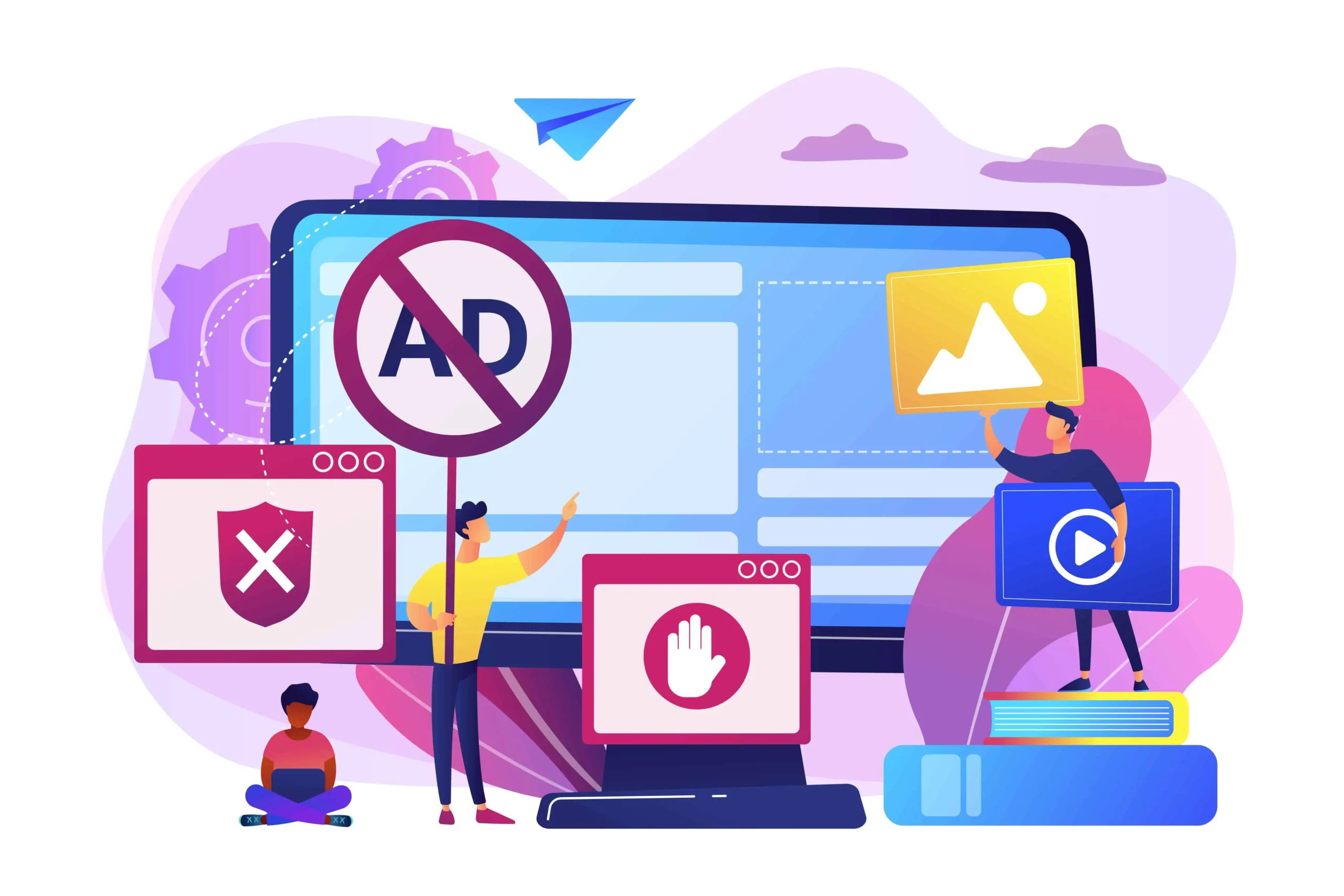Learn about the top 10 common SEO mistakes that harm your website
1- Skipping data analysis
First and foremost, ignoring data can lead to missing valuable opportunities. Tools like Google Analytics and Google Search Console provide detailed data about your site’s performance, including featured keywords. About 40% of companies are not good at exploiting this data in a way that improves their performance.
2- Lack of interest in using technical SEO
Many marketers neglect the importance of technical SEO, and this can cause a lot of problems. Technical SEO is about things including loading speed, site security, code quality, site structure and other factors that can affect how search engines understand your site.
For example, the SEMRush report indicates that 65% of sites experience technical SEO issues as part of common SEO mistakes.
Dealing with common SEO errors requires a deep and ongoing understanding of how search engines work, and applying this understanding effectively into your strategy. Data analysis and focus on technical SEO are two key elements in this process.
3- Not using keywords correctly
Keywords are the backbone of an effective SEO strategy. You may think that putting keywords everywhere can be useful, but this technique – known as (keyword stuffing or over-stuffing) – can lead to a negative impact on your site’s ranking.
Search engines like Google have become smarter, looking for keywords that match the context and provide real value to the reader. Therefore, making sure that keywords are used correctly and naturally in the content is crucial.
Using keywords incorrectly can reflect negatively on your SEO efforts. Here are some examples:
- Irrelevant keywords : Using keywords that are not directly related to the main topic of your page can result in a negative user experience and possibly penalties from search engines.
- Keywords that do not fit your target audience : Using general terms instead of focusing on terms that are more specialized and relevant to your target audience can reduce the effectiveness of your strategy.
- Keyword stuffing : Overusing keywords in an unnatural way can reduce the quality of the content and cause a negative user experience.
- Very long or very short keywords : One-word keywords may be subject to intense competition, while keywords consisting of more than five words may be narrow in scope and not generate much search.
I remind you that the main goal of using keywords is to provide useful and valuable content to the audience you are targeting, not just to rank highly in search results. So avoiding these common SEO mistakes will be an important step in striving towards achieving SEO success for your site.
4- Lack of continuous research and updating
SEO is an ever-changing world. Search engines are constantly adjusting the algorithms and tools they use. So, if you ignore these updates and do not adapt them into your SEO strategy, you may find that your site becomes less competitive and ranks lower in search results.
Among the common SEO mistakes that many make, this one is at the forefront. However, just paying attention to this point and working on it can lead to significant improvements in your ranking in search engine results.
It is also important to do continuous research and updates on the keywords you use. Trends and ideas regarding the topics, products, and services you offer on your site change, and this should translate into the keywords you use.

5- Ignore search engine algorithm updates
Search engine algorithms like Google update regularly, their primary goal is to improve the quality of results that are presented to users. These updates may include changes in how website content is evaluated and analyzed, and how it affects search rankings. Constantly ignoring these updates is a common SEO mistake that can deteriorate your site’s ranking in search results, which in turn may lead to an unsatisfactory search experience for users.
Are you looking for ways to improve your site’s performance on search engines? You first need to make sure that you do not fall into some common SEO mistakes. So avoid frequently ignoring search engine algorithmic updates. Because if these updates are ignored, your site’s ranking in search results may decline, reducing your site’s visibility and harming user experience.
6- Neglecting user experience
Focusing on SEO without considering user experience may have negative effects on your site’s ranking. Here are some common user experience mistakes that can impact SEO:
- Non-responsive design : As mobile usage increases, ignoring responsive design may lead to a negative user experience, reducing how long a user stays on the site, and increasing the bounce rate.
- Long loading times : Sites that require more time to load may cause users to go to other sites, increasing the bounce rate.
- Poor browsing experience : Unclear navigation or cluttered content can lead to user frustration and abandonment of the site.
- Inconsistent content : Content that does not fit keyword expectations can cause a negative user experience, resulting in a lower ranking in search results.
Therefore, make sure to make user experience an essential part of your SEO strategy, as it plays an important role in obtaining a high ranking in search results and providing a positive experience for users.
Also make sure that user experience is at the heart of your SEO strategy. Common user experience errors, such as unresponsive design, long loading times, or a poor browsing experience, can all negatively impact your site’s ranking.
7. Not Optimizing for Local SEO
Local SEO is vital for businesses targeting specific geographic locations. Neglecting local optimization can lead to missing out on potential customers.
- Not using local keywords: Limiting ourselves to general keywords may lead us to ignore local opportunities to appear on the first page of search results.
- Negligence in updating business data: For businesses that do not update their data on platforms like Google My Business, it may be difficult for them to appear in local search.
8- Relying on low-quality content
The saying goes that quality trumps quantity, and this is especially true in SEO. Posting poor quality content is one of the common SEO mistakes. Google and other search engines, of course, prefer content that provides value to readers. Therefore, the most common errors in content include:
- Copy and paste: Republishing content from other sites, without any modification or addition of value, can expose your site to being alerted by search engines.
- Thin content: short articles that do not adequately cover the topic or do not provide real value to the reader.
- Spelling and grammatical errors: They distort the image of the content, and may lead to a loss of trust in your site.
- Poor use of keywords: Keywords should fit naturally and meaningfully into the content. Excessive use of keywords, known as ( keyword stuffing ), may be penalized by search engines.
- Verifying that your content is valuable and of high quality is an essential component of SEO, and should be part of any successful strategy.
9- Misuse of internal and external links
Links are an essential part of SEO, but using them incorrectly may have a negative impact on your performance in search engines. Here are some common SEO mistakes regarding links:
- Broken or incorrect internal links: These may disturb the user experience and negatively affect your position in search results.
- Poor handling of external links: Linking to irrelevant or low-quality sites can hurt your reputation and reduce trust in your site.
- Failure to use appropriate anchor text: Anchor text must be clear, appropriate, and relevant to the content it links to.”
read this : How to Increase the Number of Search Results in Google 2023
10- Going beyond improving images
Over-optimizing images or doing it incorrectly can have a negative impact on your SEO performance. Common examples of mistakes in image optimization include:
- Not providing alternative text for the image (ALT Text): This is an important element for search engines, which helps in understanding what the image contains.
- Use large images: Large images may cause slow loading time, resulting in a negative user experience.
- Not optimizing the file name and image title: Using file names that describe the visual content and relevant keywords can help search engines better understand and categorize the image.
- Using images in a smart, SEO-friendly way can be effective in improving your ranking in search engines, but this requires attention to detail and adherence to best practices.
Conclusion
Avoiding these common SEO mistakes is pivotal for enhancing a website’s ranking and visibility on search engines. By addressing these issues and implementing effective strategies, website owners can significantly improve their online presence and reach.
FAQs
- How do I know if my website is affected by keyword stuffing?
- Check for an unusually high keyword density in your content and a sudden drop in rankings, which could indicate keyword stuffing penalties from search engines.
- What steps can I take to improve my website’s loading speed?
- Compress images, minimize HTTP requests, use content delivery networks (CDNs), and leverage browser caching to improve loading speed.
- Is it essential to regularly update content for SEO purposes?
- Yes, updating content regularly keeps it fresh and relevant, signaling search engines that your website is active and offering updated information.
- How can I enhance the user experience (UX) of my website for better SEO?
- Focus on mobile responsiveness, page speed, intuitive navigation, quality content, and clear calls-to-action to improve UX, positively impacting SEO.
- Why is local SEO important for businesses?
- Local SEO helps businesses target specific geographic areas, attracting nearby customers and improving visibility in local searches.


